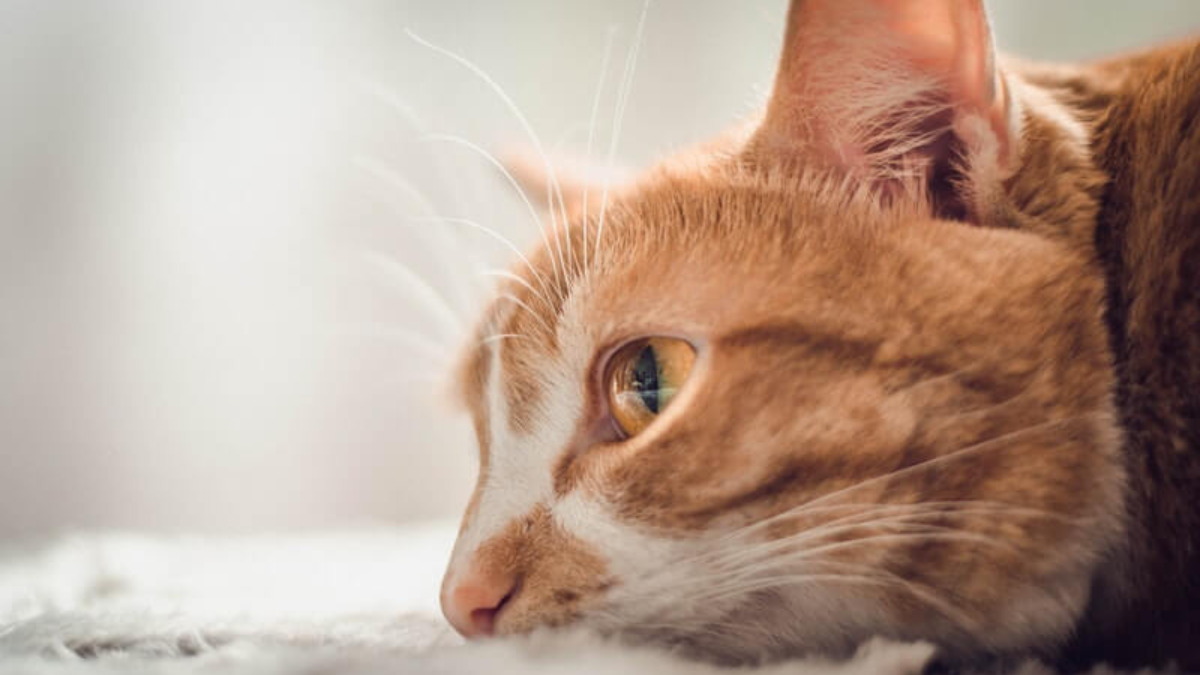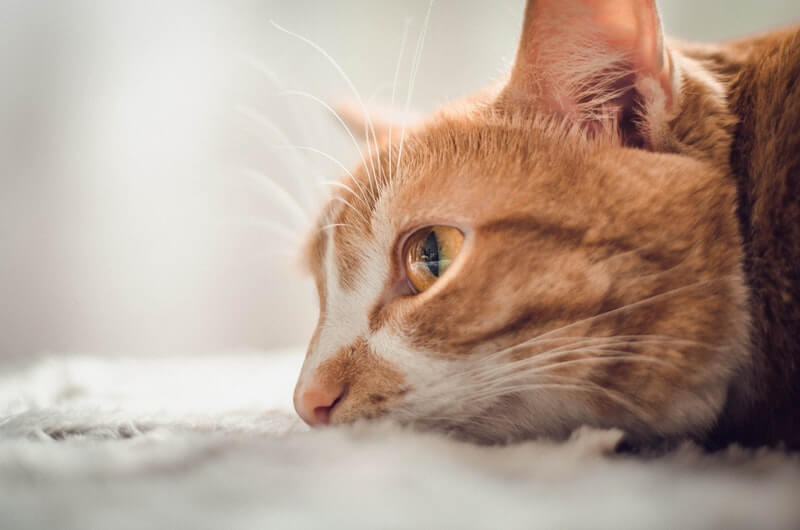📖 Table of Content:
If you’ve ever called your cat, only to be met with a vacant stare or a nonchalant tail flick, you may have found yourself wondering, “Does my cat even know her name?” It’s a common question among cat owners, especially those who spend a lot of time talking to their feline friends. We often believe that our cats are tuning in, soaking in every word like an attentive pup, but is that really the case?
So, do cats know their names? The answer is more complicated than you might think. Let’s dive into the fascinating world of feline cognition and explore whether or not your cat is actually responding to her name—or if you’re just being the butt of her little feline joke.
The Science Behind a Cat’s Name Recognition
Before we get into the behavior, let’s take a quick look at what science says. Studies have shown that cats are capable of recognizing familiar sounds and voices, including their names. Unlike dogs, who have been bred for centuries to interact with humans in specific ways, cats have a much more independent nature. They didn’t evolve to respond to commands or verbal cues. However, that doesn’t mean cats are oblivious to the world around them. They’re actually quite sharp when it comes to their environment—just in a different way.
A study conducted by animal behaviorists in Japan examined whether cats could recognize their names. In this study, researchers played recordings of human voices calling the cats’ names, along with random words and sounds. What they found was that cats did indeed react to their own names. They were more likely to turn their heads, look at the speaker, or perk up when they heard their name—especially when it was followed by a familiar tone or their owner’s voice.
In other words, cats do know their names. The real question is whether they care enough to acknowledge them. And that, my friends, is where things get interesting.
Why Don’t Cats Respond Like Dogs?
Unlike dogs, cats don’t have an innate drive to please their owners. While dogs have been trained for thousands of years to follow commands and cues, cats have a different evolutionary background. Cats are solitary hunters by nature. Their ancestors didn’t need to respond to a human’s voice—they were more focused on catching prey and surviving in the wild.
So when you call your cat, don’t be too surprised if she doesn’t come running like a dog would. Cats are far more selective about when they choose to respond. While dogs may jump to attention at the mere mention of their name, your cat may be thinking, “Hmm, do I really want to get up for that?” It’s not that she doesn’t recognize you or your voice; it’s just that she values her independence more than anything else.
The Power of Your Voice
If you’ve ever noticed that your cat reacts differently when you call her versus when someone else does, you’re not imagining things. Cats are incredibly attuned to their owner’s voice. According to experts, your cat is more likely to respond when she hears the sound of your voice, especially if it’s one she associates with positive experiences, like feeding time, play, or petting.
So while your cat may not rush to you when you call, she’s likely listening. She just has a different way of interpreting the world. Cats are much more independent in their decision-making. If you’re calling your cat, and she’s busy napping or stalking a toy, you might get a lazy glance, but that doesn’t mean she didn’t hear you. She just chose to ignore you for a moment. That’s the beauty of feline nature—they respond when it suits them.
Cats Are Masters of Selective Listening
One of the key reasons cats often seem to ignore us when we call their names is their ability to focus intensely on one thing at a time. Cats have an incredibly sharp attention span, especially when it comes to hunting or playing. When your cat is deeply engrossed in a task—whether it’s watching birds from the window or chasing that elusive red dot—calling her name won’t necessarily break her concentration. This is a survival instinct that’s deeply embedded in her DNA. Why would she interrupt her hunt to come to you when she’s already so focused?
However, when she’s in a more relaxed, “down-time” state, you may find she’ll respond to her name more readily. This might be during a cuddle session, or when she’s in a playful mood. Cats tend to give attention when it aligns with their desires, not because they’re actively listening for cues from us.
Can You Train Your Cat to Respond to Her Name?
While cats may not respond to their names on command like dogs, they can be trained to associate their name with something positive. This can be done through a process called positive reinforcement. You can start by saying your cat’s name before offering something she loves, like a treat, a petting session, or playtime. Over time, your cat will start to associate her name with rewards, which might make her more likely to respond when called.
However, don’t expect your cat to come running like a dog would. The training process for cats is much slower, and they tend to be more stubborn. But with patience, you can build a stronger bond with your feline friend through consistent, rewarding interactions.
Yes, Your Cat Knows Her Name—But Does She Care?
So, does your cat know her name? Absolutely! She’s just not as eager to respond to it as your dog might be. Cats are independent creatures who don’t feel the need to jump to attention at every sound. However, when the mood strikes, your cat will recognize you and your voice—and may even offer a response if it benefits her in some way. In the end, cats are mysterious, independent creatures, and while they may not always obey your calls, they’re still listening. After all, they know who’s in charge… even if it’s not them!
Now, the next time you call your cat and she looks at you like you’re the one being foolish, just remember—she knows her name, she’s just too cool to act like she cares.


